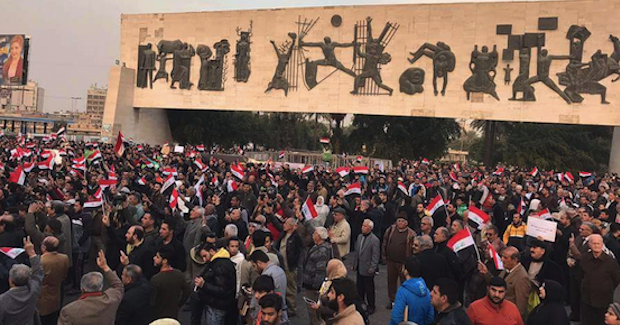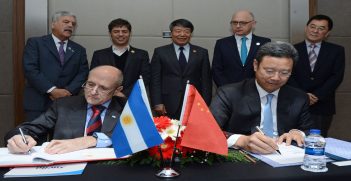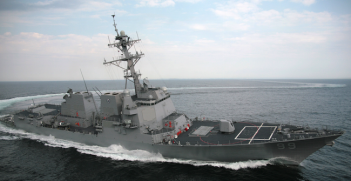A Year of Fear and Frustration in Iraq

The military offensive to liberate Mosul may be the defining event in Iraq for 2016. But there have been others—from dramatic street politics to horrific terrorist bombings—that have shaped the country and revealed issues and actors destined for important roles in its future.
Media coverage of the Iraqi government-led operation to recapture the northern Iraqi city of Mosul will likely mean that 2016 is remembered as the year in which the Islamic State group’s territorial aspirations began to be wound back. This is a significant milestone for Iraq and the outcome and aftermath of the Mosul offensive will have important future impacts, as discussed in my previous article about political manoeuvrings.
The situation in Iraq is complex, however, and it is important to also recognise a number of other pivotal events in 2016 that provide a deeper understanding of the state of the country and its prospects for the future.
Street politics
Street politics has been a feature of Iraqi civil society since 2003. The heat was turned up in the middle of 2015 when poor government service delivery left Iraqis suffering through a sweltering summer without reliable electricity or water. Iraqis staged mass demonstrations and blamed the situation on the country’s ethno-sectarian political quota system and the endemic corruption it has entrenched. Since then, civil society actors have converged in regular Friday protests to demand political reform. In March and April 2016 the protests escalated dramatically and the government came under immense pressure.
Weekly protests of hundreds or thousands grew to hundreds of thousands when the social movement led by Muqtada al-Sadr, a controversial and influential cleric, lent its considerable organisational capability to the pro-reform protest movement. In an escalating campaign over several months, the pro-reformists articulated a set of demands and weekly protests evolved into a sit-in outside the gates of the Green Zone.
A secure government and diplomatic district of Baghdad, the Green Zone first symbolised US occupation and is today associated with the decadence of the country’s out-of-touch political elite. Following a symbolic action by Muqtada al-Sadr to enter the Green Zone and stage a one-man sit-in, thousands of protesters scaled concrete blast walls to peacefully occupy their own parliament.
For many Iraqis, especially civil society groups who continue to meet for weekly Friday protests, the struggle for political reform is as important as the fight against the Islamic State group. Indeed, their sophisticated critique of the Iraqi political system argues that its quota system entrenches patronage networks and corrupt behaviour, eroding the capacity of the government to deliver services, including electricity, safe water, and security. This creates the conditions in which terrorism can thrive. Fighting corruption, the activists argue, goes hand in hand with fighting terrorism.
Their country faces urgent and daunting security and humanitarian challenges, yet Iraqis remain critically and actively engaged with politics. Civil society activists envisage a new Iraqi state based on citizenship and human rights, with government services delivered by competent technocrats.
Attack in Karrada
In July 2016, while the Chilcot report on the United Kingdom’s role in the 2003 invasion of Iraq generated international attention, the Islamic State group perpetrated a horrific suicide truck bombing in Karrada, a district of Baghdad, during Ramadan late night shopping. The blast was devastatingly destructive and killed more than 340 people.
In the days and weeks following the bombing, the site was transformed into a sacred site where Baghdadis came to show their respect for the victims, their families and their community. Candlelit vigils were held. Demands were made for government accountability, including the dismissal of administrators responsible for security in Baghdad, and politicians who visited the site were greeted by hostile crowds.
The Karrada bombing left a deep and painful scar on the already wounded city of Baghdad and reminded the world that Iraqis continue to live with the daily reality of terrorism. Barely a day passes without a terrorist attack targeting a roadside checkpoint, a place of worship, a market or a shopping centre.
Walking to Karbala
The annual pilgrimage to the southern Iraqi city of Karbala for Arbaeen is one of the largest peaceful gatherings in the world and in the past has attracted crowds in excess of 20 million people. It commemorates the death of Imam Hussein, the grandson of Muhammad, whose death in the Battle of Karbala symbolises personal sacrifice while fighting injustice. This year Arbaeen took place in November and an estimated 22 million people were expected to take part, including many from Iran.
Arbaeen holds both religious and political meaning. For many Iraqis, walking to Karbala symbolises peaceful resistance, an act of defiance against seemingly overwhelming injustice. The Baath regime prohibited the event, but small numbers of people did it anyway as an expression of nonviolent resistance to the regime.
In the early years of the US-led occupation and insurgency, Iraqis began walking in greater numbers, demonstrating national pride and a willingness to resume their way of life in the midst of chaos and violence. Today, the walk is interpreted as symbolic defiance against terrorism and, for some activists, an extension of the pro-reform campaign which they see as a continuation of Imam Hussein’s quest for justice.
As it has done over the past several years, the Islamic State group targeted Arbaeen pilgrims with terrorist bombings, killing dozens of pilgrims including many from Iran. Fortunately, many millions were able to complete their walk in peace. Iraqi social media was full of messages of gratitude for the security forces—including, of course, countless selfies taken with the soldiers who were guarding those walking to Karbala.
A long way to go
Away from the televised frontline of the battle for Mosul, politically-engaged Iraqis are getting organised and tirelessly using nonviolent protest to advance a sophisticated critique of Iraq’s political system and articulate a vision for the future.
Yet terrorism remains a part of daily life—its impacts will shape the worldview of a generation of Iraqis and may only get worse as the Islamic State’s territorial ambitions are wound back and it shifts its approach to insurgency and terrorism. Events like the Arbaeen pilgrimage provide an opportunity for Iraqis to symbolically express peaceful resistance to injustice and allow the outside world, if it listens carefully, to hear their voices.
Iraq’s challenges are daunting and will take many years to resolve. Looking beyond news reports on terrorism and war, it is clear that Iraq’s people are envisaging and preparing for a future of good governance and security. That future is a long way off, but it is slowly being shaped by a resilient people who remain defiant in the face of overwhelming injustice.
Damian Doyle is a PhD research scholar at the Centre for Arab and Islamic Studies at the Australian National University. His research is focused on social movements and contentious politics in Iraq. Follow him on Twitter: @toaf.
This article is published under a Creative Commons Licence and may be republished with attribution.





